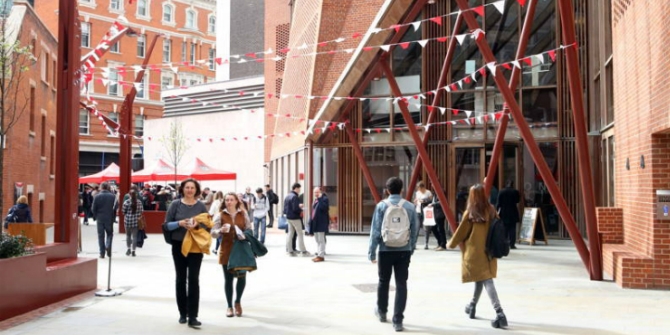By MSc City Design and Social Science Graduand, Álvaro Orbea
So what is it like to be a post-graduate from LSE Sociology? I must clarify first that I’m not a sociologist, and I’ve been questioning the sociologist abilities that I learned in school (after I got my grades back). I don’t know if anyone is in my position, but to put it in a nutshell, I began working in this interesting and engaging job were I’ve been given the opportunity to experience (a) real life. And here we go –I’m sure that the entire class will start firing at me–, what does real life mean? How is it that you’re defining real? Do you really think that the job that you have can be categorised as real? What’s the theoretical base from which your sustaining your point?… That’s right, so many questions. And the problem is that the class is inexistent, the people are gone off to find themselves in average-paying jobs, PhD applications, breaks, and other activities that I can only imagine when scrolling my Facebook news feed. Then who’s asking all those questions –it’s just me.
And here is the thing, ever since I left school I feel smarter, but in the sense that I have disconnected myself from anything that can make me feel dumb. My English-speaking job requires me to simplify everything, compress it into a nicely built sentence, and then spit it out objectively. But from time to time I have this sudden urge to speak in what sounds as a proliferation of histrionic complications, through a tidal wave of incoherencies embellished by my own baroque verbal ornaments. Now, if one complicates something it’s probably due to a lack of understanding of the subject. After leaving the LSE I’m confident that is exactly what happened to me –and I felt quite dumb this past year.
Not anymore though. It’s time to restrain myself from ‘not understanding’ and time to pretend that I’m an expert in [input the expertise that I’m supposed to show in my daily job]. But that quotidian activity of convincing myself that I’m smarter that I actually am is exhausting. The more I try to excel in my expertise, the more scripted my words sound and little by little I begin to hear the muttering of my classmates, asking me all those annoying sociological questions. Do I dare shout my inner voices out loud in this open-office? Shall the act be interpreted as a selfish boast of a random person that sits in the corner desk?
I have to shut up. Take a deep breath and rejoice in the comfort of observation. I’ll have my eyes locked on my screen and be armed with a notebook in my holster, ready to document the daily activities of these strange creatures that roam in the corridors of the office. I shall crush my need to be dumb to become an expert, I shall be rational and prepared for meetings, I shall always talk straight to the in no more than 250 words. I’m sure I can do it.
But the fact that I want to spit out incoherencies and erratic –yet complex– thoughts makes me realise that deep down I just love being dumb. What is love? And why am I attempting to describe this overwhelming feeling with a trail of disconnected rational arguments?




